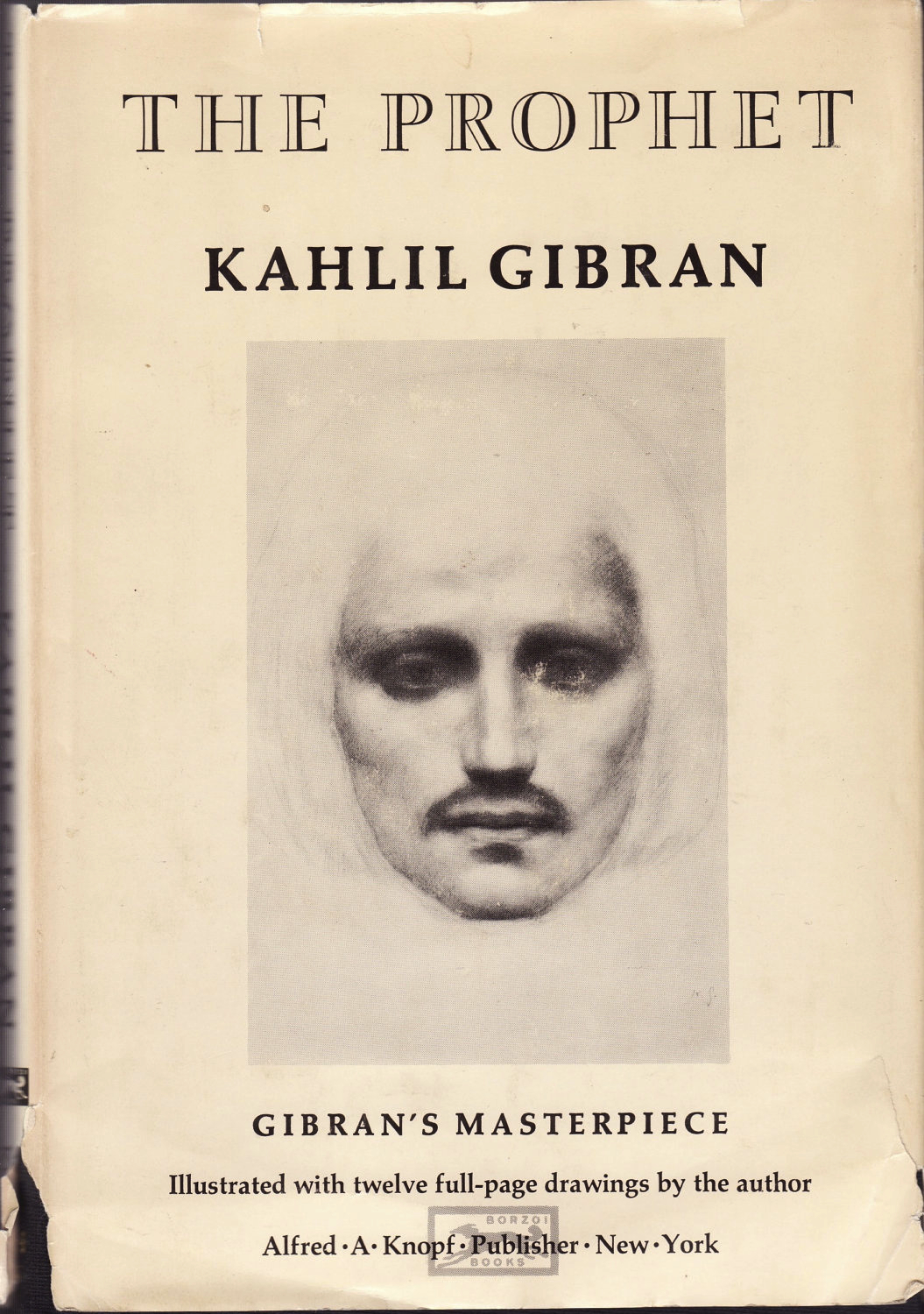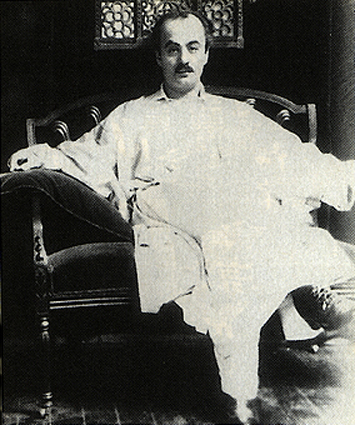A global publishing phenomenon has long fascinated me. Ranking number three among the world's best-selling poets -- after Shakespeare and Lao Tsu -- is Kahlil Gibran.
The most famous and most-quoted work -- certainly in the English-speaking world -- from this avowedly mystical writer and artist is The Prophet, and it has never been out of print, ever since a sharp-eyed Alfred Knopf took a flyer on the young Lebanese immigrant in 1920s New York, publishing a first run of 2,000 copies.
Knopf wasn't quickly rewarded by his bold venture; Gibran's slim volume of poetic essays on the human condition -- offered under various headings like Love, Marriage, Children, Joy and Sorrow, Freedom, Reason and Passion, Pain, Death and so on -- sold only about half of its print-run. But it went on over time to be translated into more than 40 languages, and evidently found a loyal following that gets replenished with every generation.
PBS in its wisdom assigned me to produce a TV examination of this enduring literary legacy -- and as soon as I told friends (discerning readers and thinkers, all of them -- naturally!) which writer I was now exploring, their reactions divided sharply. Those who welcomed new attention being paid to "a genius of soft-spoken but piercing truths" were matched by others who thought my time was being arrantly wasted on a "superficial con-man, only fit for adolescents."
Viewers of the PBS program, Religion and Ethics Newsweekly will be, as ever, their own best judges -- when it airs this weekend (see local billings for airtime). But along with my R&ENW colleague, correspondent Lucky Severson, I have canvassed some intriguing testimony about Gibran's appeal and we have presented, I hope, a pretty fully rounded account.
Watch Kahlil Gibran's Legacy on PBS. See more from Religion & Ethics NewsWeekly.
The biggest boost to Gibran's readership came in 1960s America -- and one expert I consulted has a persuasive explanation as to why. Professor Suheil Bushrui, who holds the Kahlil Gibran Chair for Peace and Values at the University of Maryland (and like Gibran was born in Lebanon) told me that the Vietnam War and the consequent "disappointment of the youth of America" prompted a search among that generation for "what could help find the meaning in life."
 It was the professor's contention that Gibran "filled the spiritual gap," and in doing so he melded with other currents of the time, which Bushrui broadly swept under a Beatles banner: "The only thing you need is love -- that was Gibran too. He meant love of humanity."
It was the professor's contention that Gibran "filled the spiritual gap," and in doing so he melded with other currents of the time, which Bushrui broadly swept under a Beatles banner: "The only thing you need is love -- that was Gibran too. He meant love of humanity."
It seems that 1967's "Summer of Love" effect has been reinvigorated in today's world by New Age enthusiasts. One directly observable manifestation is the frequent reading at wedding ceremonies of Gibran's "On Marriage" passage from The Prophet -- especially at weddings that are non-denominational, cross-denominational, or have no formal religious character at all.
A Long Island wedding-officiant, Pastor April Gismondi talks in our show -- where she is also seen presiding at a secular equivalent to a child's baptism, a so-called "Welcoming Ceremony"-- about how Gibran "speaks to the core of what makes us truly human -- the things that we all struggle with, the things that we all enjoy, the lessons we have to learn".
That about sums it up, I think -- at least for the 100 million or so people, nine million in the U.S., who have bought Gibran's books... whatever judgment might come from superior critics who won't equate lasting popularity with depth.
* * * *
Read more of David Tereshchuk's media industry insights at his regular column, The Media Beat, with accompanying video and audio. Listen also to The Media Beat podcasts on demand from Connecticut's NPR station WHDD, and at iTunes.